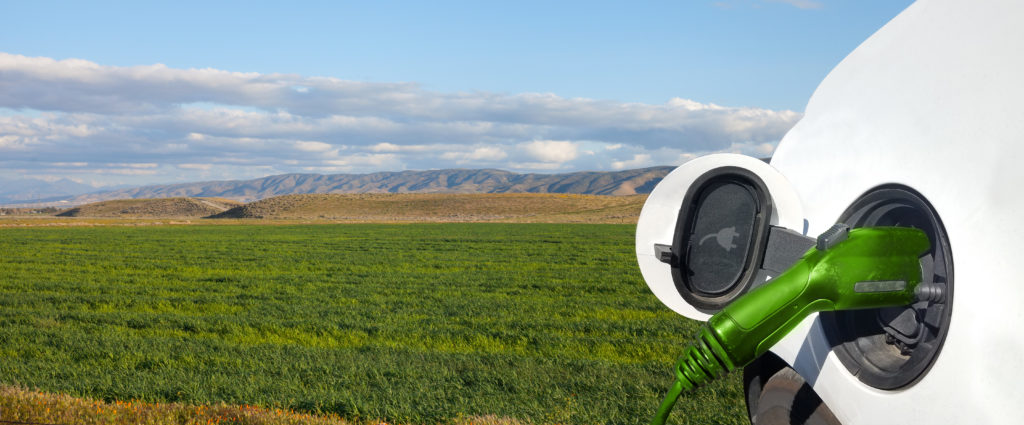
NRECA has joined with 17 of its member electric cooperatives to apply for $8 million in federal grants to bring electric vehicles to low-income rural communities.
Most of the proposed co-op projects would install public EV charging stations at key locations such as low-income apartment complexes, medical facilities, parks and highway corridors, said Brian Sloboda, NRECA’s director of consumer solutions.
“In some cases, these would be the first public chargers that anyone in the community has ever seen,” he said.
The proposal also includes innovative ideas from two co-ops about ways to use EVs for business purposes, Sloboda said.
Great River Energy, a generation and transmission co-op based in Maple Grove, Minnesota, plans to buy electric work vans to provide to electricians who serve low-income co-op members. Kit Carson Electric Cooperative, a distribution co-op in Taos, New Mexico, wants to purchase several Ford F-150 Lightning all-electric pickup trucks for its broadband command center to help keep high-speed internet service running for its members during natural disasters and other emergencies.
“It’s really a great mix of projects that address the Vehicle Technologies Office of the Department of Energy’s forward-looking vision of how to bring the benefits of electric vehicle technology to underserved, low-income and rural communities,” Sloboda said.
The DOE will fund 50% of the cost of the projects, leaving co-ops and any community partners to pay the rest. The agency will announce a maximum of five winners at the end of the highly competitive process in October. The co-ops are competing as one unit, rather than as individual businesses, with NRECA as the project leader.
“I don’t think you can find another team that represents such a diverse group of utilities, projects and communities and that meets the ambitious goals of the Department of Energy,” Sloboda said.
When NRECA announced in April that it was seeking co-ops to apply for the DOE grants, more than 50 expressed interest, he said. However, the fast turnaround time for proposals—which had to be completed in about eight weeks—quickly narrowed the field.
“There are going to be other funding opportunities for EVs, but they all require a very quick turnaround,” Sloboda said. “I would urge co-ops to develop their project ideas now.”
Despite increasing interest in EV charging by for-profit companies, “few companies are building this infrastructure and trying to grow EVs in the rural areas except these non-profit, consumer-owned electric cooperatives,” he said.
“It’s a long-haul investment that’s not going to pay off overnight,” Sloboda said. “This is where we need the leadership from the DOE in recognizing the needs of these underserved rural communities. Without co-ops working with the DOE, we probably won’t see rapid progress.”
In addition to Great River Energy and Kit Carson Electric Cooperative, the co-ops participating in the NRECA-led proposal are:
• San Isabel Electric Association (Pueblo West, Colorado)
• United Power (Brighton, Colorado)
• Egyptian Electric Cooperative Association (Murphysboro, Illinois)
• Southwestern Electric Cooperative (Greenville, Illinois)
• Jay County Rural Electric Membership Corp. (Portland, Indiana)
• Flint Hills Rural Electric Cooperative (Council Grove, Kansas)
• Nemaha-Marshall Electric Cooperative Association (Axtell, Kansas)
• Warren Rural Electric Cooperative Corp. (Bowling Green, Kentucky)
• Lincoln County Power District No. 1 (Pioche, Nevada)
• Roanoke Electric Cooperative (Aulander, North Carolina)
• Hancock-Wood Electric Cooperative (North Baltimore, Ohio)
• A&N Electric Cooperative (Tasley, Virginia)
• Columbia Rural Electric Association (Walla Walla, Washington)
• Inland Power and Light Co. (Spokane, Washington)
• Dairyland Power Cooperative (La Crosse, Wisconsin)
Erin Kelly is a staff writer for NRECA.